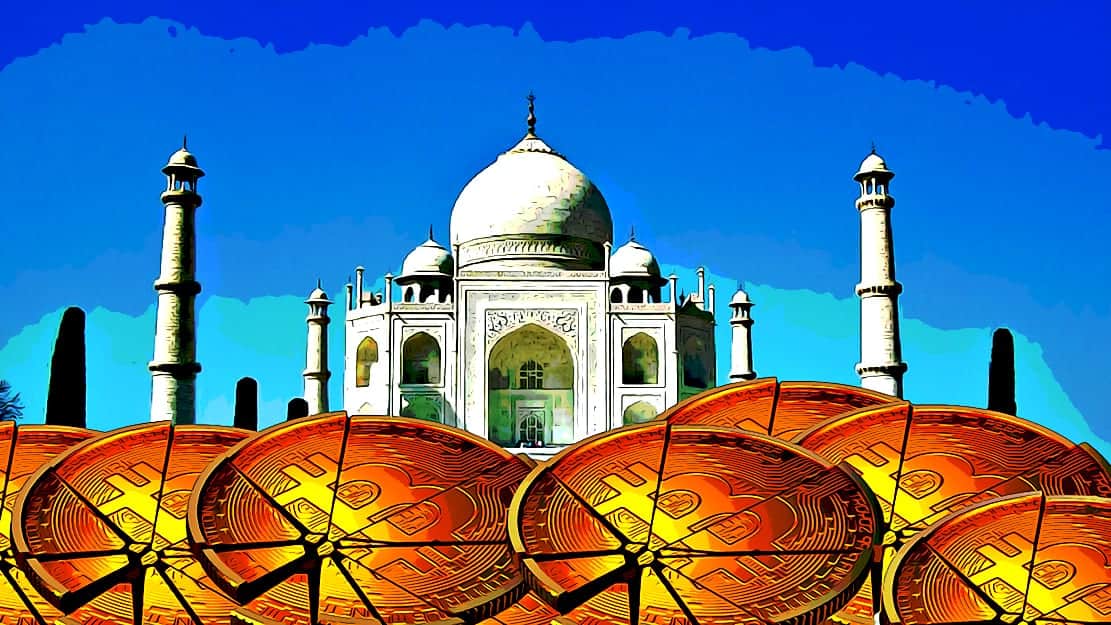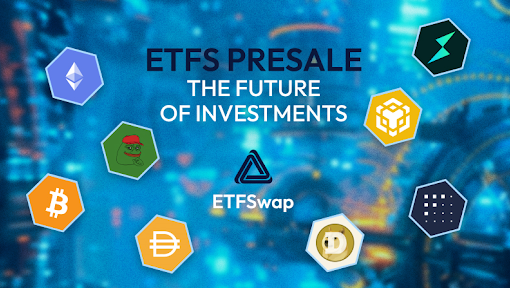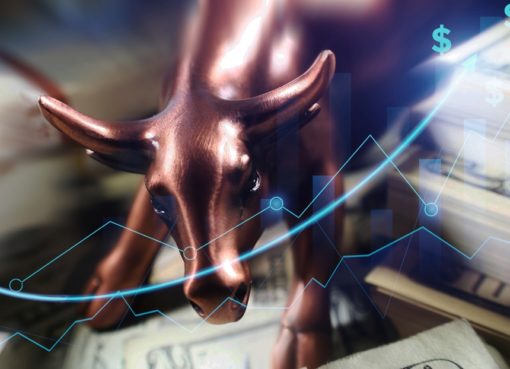In this issue
- All aboard the bitcoin express
- Are we on the brink of an NFT revolution?
- DeFi now on regional Fed’s radar
- Crypto race in the U.S. — and a call to (blockchain) arms for Biden
- India moves closer to banning private crypto like bitcoin
- Will Hong Kong outlaw retail crypto investing?
From the Editor’s Desk
Dear Reader,
Build it and they will come.
The eternal words of manifestation brought to life on the big screen (in the pre-Covid world of cinemas), Field of Dreams captured the magical truth of that simple statement. You don’t have to watch the movie to appreciate the saying. Those words have been spoken by many a visionary, and right now, we’re seeing it take shape in blockchain and bitcoin.
But let’s go beyond the headlines of the story currently cluttering your airwaves and social feeds (bitcoin’s new ATH of US$50,000!!!) to what makes the entire industry truly valuable, and that’s the building of a new way to do business with each other.
We’ve seen a level of mainstream crypto acceptance this week that was the stuff of fantasies just a few thousand days ago. From disdain and disbelief, to acceptance and adoption. Since the release of Satoshi Nakamoto’s Bitcoin whitepaper in 2008 to today in 2021, the technology continues to build a new infrastructure of creating, transferring and storing value.
Critical now is guidance. Don Tapscott and his team at Blockchain Research Institute have authored a blockchain strategy bluebook for the Biden administration to think about America’s place in this brave new world and to take action. There is much to do, and a lot of lost ground to make up. But if they build it, more will come.
Until the next time,
Angie Lau,
Founder and Editor-in-Chief
Forkast.News
1. All aboard the bitcoin express
By the numbers: Bitcoin — over 5,000% increase in Google search volume.
Some of the biggest American banks that previously ignored or heaped scorn on bitcoin are now shifting their stance. Corporate household names like Mastercard and megacelebrities like Jay-Z are also now on the bitcoin gravy train, accelerating the cryptocurrency toward what they believe would be mass adoption. Bitcoin is currently trading at just above US$51,000 at publishing time.
- In 2017, JPMorgan Chase CEO Jamie Dimon called bitcoin a “fraud.” This past week, his lieutenant, bank co-president Daniel Pinto said that JPMorgan would have to get involved if bitcoin develops into an asset class used by asset managers. Pinto added that the “demand isn’t there yet, but I’m sure it will be at some point.”
- Bank of New York Mellon, the oldest bank in the U.S., announced this past week that it would hold, transfer and issue bitcoin and other cryptocurrency for its asset management clients.
- Following PayPal and Visa’s bitcoin moves, Mastercard announced that it would be enabling crypto payments in 2021. BitPay has also announced that it has added bitcoin support for Apple Pay for users holding a prepaid Mastercard.
- Uber, the world’s largest taxi and ride-sharing company, would consider accepting bitcoin for payments, according to CEO Dara Khosrowshahi.
- Canada has approved the launch of the world’s first bitcoin ETF.
- Rapper-turned-billionaire music mogul Jay-Z has partnered with celebrity CEO Jack Dorsey of Twitter to launch a bitcoin development fund focused on Africa and India. The two have invested 500 BTC, which is worth more than US$25.4 million as of publishing time.
- But in an op-ed for the Financial Times, Nouriel Roubini — the contrarian economist who predicted the 2008 financial crisis — is sounding alarms. He calls bitcoin a mere “play on a speculative asset bubble,” compares the rising prices to Holland’s tulip mania, and predicts a similar crash. Roubini adds that the massive environmental impact of bitcoin mining makes the fundamental value of bitcoin negative to the planet — underscoring the irony of the recent US$1.5 billion bitcoin investment by Tesla, which has long touted the company’s environmental benefits through its electricity-powered vehicles.
Forkast.Insights | What does it mean?
PayPal, Visa, now Mastercard — retail investors’ exposure to bitcoin and crypto continues to grow. Mastercard says they want to enable customers to move digital value, whether it be traditional or crypto. But will bitcoin really emerge as a viable currency for everyday purchases? One user laments about bitcoin: “Those transaction fees are for every single transaction though! Using my Visa card accepted in over 200 countries and there’s no transaction fee for every single purchase I make unlike Bitcoin.” There are clear winners: intermediaries like Mastercard will capitalize on the increased volume, bitcoin miners will benefit from the transaction fees, but will retail users really embrace bitcoin as a currency in the long term — or will bitcoin simply endure as a speculative fad?
To support bitcoin’s potential as a lasting currency, Jack Dorsey and Jay-Z created the ₿trust endowment, whose mission is to “make bitcoin the internet’s currency,” according to its board member application form. Making bitcoin the internet’s currency would require addressing not just the retail users’ concerns but also the concern about bitcoin’s high energy consumption. Bloomberg recently called bitcoin an “incredibly dirty business.” Bitcoin clearly has a carbon footprint, but Bloomberg’s analysis compares CO2 generation per transaction of bitcoin versus per Visa transaction. But this comparison may be misleading because the bulk of bitcoin energy consumption is performed by miners to win the right to process transactions, not for the transaction itself. Furthermore, bitcoin functions as an independent money settlement system, while Visa relies on external settlement channels (ACH, SWIFT, Fedwire, the Federal Reserve, etc.) that require their own energy consumption. The question also arises: Why would a clean technology company like Tesla invest in bitcoin if its energy consumption went against the company’s values?
One commenter raised a counterpoint to bitcoin’s energy consumption argument: “We do more harm to the environment through printing money which allows nations like the US to wage wars & injustice to other nations. BTC fixes this though a free market dynamic.” Investors concerned about the U.S. dollar’s hegemony may also find bitcoin an attractive alternative to the USD.
2. Are we on the brink of an NFT revolution?

By the numbers: NFT— over 5,000% increase in Google search volume.
Are we on the brink of a non-fungible tokens (NFT) revolution? According to billionaire entrepreneur Mark Cuban, non-fungible tokens in the form of artworks and other digital collectibles are the game-changing applications that will one day lead to digital assets overtaking the physical collectibles market. Cuban, who has been a skeptic of bitcoin as a currency, is an Ethereum supporter for its real-world use cases and smart contracts applications. He is not alone in his enthusiasm over NFTs.
- The Winklevoss twins, Philadelphia 76ers owner Michael Rubin, DJ Alesso and other celebrities are launching a blockchain-enabled, charity-oriented digital artwork sales network named Ethernity.
- On blockchain marketplace and gaming platform Axie Infinity, virtual land was sold for US$1.5 million worth of ether, the Ethereum blockchain’s coin. Mark Cuban notes that for people to interact with much of the NFT marketplace, they would need to convert their currency to ether.
- Dapper Labs, a blockchain startup that allows fans to buy collectible in-game video moments of the National Basketball League through its digital collectibles platform NBA Top Shot, has disclosed that it has earned more than US$50 million in sales in the last 30 days. In comparison, a 2003-2004 LeBron James basketball card was sold for US$1.8 million last year.
Forkast.Insights | What does it mean?
Mark Cuban sees crypto trading exactly like the internet stock bubble, largely driven by the sales pitch of scarcity vs. demand. However, Cuban views the blockchain space upside as “truly unlimited.” In particular, he sees great potential for digital collectibles via NFTs to overtake the physical collectibles market. This trend opens a massive earning opportunity. The global art market alone was valued at US$67 billion in 2018.
“You can sell anything digital using NFT,” Cuban said. “Virtual Mavs gear, sneakers, art, pictures, videos, experiences, anything our imagination can come up with.” Cuban himself demonstrated the power of digital collectibles on Ethereum by creating his own NFT series, The RollUp 2021, one of which sold for 35 ether (worth US$63,700 as of publishing time) two weeks ago. If the US$40 billion total value locked in DeFi seemed like a lot, time will tell how much the digital collectible market will penetrate the art and collectibles market.
Cuban and others are simply realizing what blockchain entrepreneurs like Yat Siu of Animoca Brands saw early on and developed over the past few years. For Yat Siu, that meant serving the capital needs of the tens of millions engaging in the gaming ecosystem. “We believe that blockchain, and in particular NFTs, represent the future of gaming, because delivering true digital ownership to gamers is the next logical step in the evolution of the videogame industry,” Yat Siu, co-founder and chairman of Hong Kong-based Animoca Brands, told Forkast.News. “It’s just a question of how long this shift to decentralized game asset ownership will take.”
Answer? That day has come.
The NFT market offers not only earning potential, it also offers an easy new avenue for charitable donations in which a portion of funds raised from each NFT sale can be automatically donated to charitable causes. Ethernity, for example, provides a way for celebrities to support philanthropic causes while participating in events close to their hearts. The beneficiaries of the blockchain and crypto explosion may end up reaching far beyond the technology industry.
3. DeFi is on the Fed’s mind in the heartland
By the numbers: DeFi — 1,050% increase in Google search volume.
On the heels of the South Korean government’s recent glowing report on decentralized finance (DeFi), the Federal Reserve Bank of St. Louis — one of the 12 regional banks that make up the U.S. central bank — has published its own report on DeFi. The report titled: “Decentralized Finance: On Blockchain- and Smart Contract-Based Financial Markets” notes that DeFi may lead to a “paradigm shift” in the financial industry. The report comes as total value locked (TVL) in DeFi surpassed US$40 billion, for the first time ever. Current TVL is at US$40.15 billion, as of publishing time.
- The St. Louis Federal Reserve report outlines what it sees as the key benefits of DeFi: efficiency, transparency and accessibility of financial infrastructure. It also sees composability — or the system’s ability to allow users to combine existing applications to create new services — as an important strength.
- The report also points out risks in the current structure, including smart contract execution problems due to coding errors, operational security threats from admin keys that can be exploited by attacks, scalability, and the potential for illicit activities like scams that are easier for bad actors to get away with due to the application’s anonymity. The report also recognizes that regulating a decentralized network may not be feasible.
- The cryptocurrency for Ethereum, the blockchain where majority of DeFi protocols are built on, is currently trading at US$1,818, as of publishing time.
Forkast.Insights | What does it mean?
Treasury Secretary Janet Yellen recently expressed concern that cryptocurrencies were a “tool to finance terrorism,” likening them to dark money. In contrast, the St. Louis Federal Reserve is showing its understanding of crypto technology and its transparent nature. The Fed branch’s recent report on DeFi gives a balanced overview of decentralized finance’s benefits and risks. The report concludes that DeFi may contribute to a “more robust and transparent financial infrastructure.”
In 2018, the St. Louis Fed said that a central bank would not issue cryptocurrencies that were decentralized and permissionless to allow users to remain anonymous. It has come a long way since then to say that DeFi may lead to a “paradigm shift” in the financial industry and bring more open, transparent financial infrastructure. The Fed does not hide the point that many DeFi protocols and applications have a degree of centralization, using external data sources and admin keys to manage their functions.
However, the St. Louis Fed, unlike Treasury Secretary Yellen, recognizes the value of blockchain’s “unprecedented” transparency to monitor and mitigate undesirable events before they arise. This could pave the way for regulators to warm up to enforcing identity verification or heightened tax enforcement. For instance, imagine a fully automated tax smart contract embedded into the blockchain. If a 0.1% tax could be imposed on DeFi transactions for users based on their location, that would imply $40 million in global tax revenue from $40 billion of value locked in DeFi.
The challenge with any smart contract like this on a blockchain is that the code is immutable once it is published. This means that smart contracts cannot be patched for bugs once their code is published.
As a middle ground between transparency and privacy, the possibility of programmable privacy is emerging on the blockchain. A prime example is Secret Network, which allows users to choose what is shared publicly with encrypted smart contracts. This may be welcome by users who want to have control over their data, particularly in reaction to centralized platforms like Facebook that have leaked user data.
4. Crypto rivalries break out in the U.S. — and a call to blockchain arms for Biden
By the numbers: Andrew Yang Bitcoin — over 5,000% increase in Google search volume.
Another crypto race is kicking off — between regions and politicians in the U.S. Who will emerge as the ultimate public champion of blockchain and bitcoin adoption? While local and state pols jostle for attention, Don Tapscott — one of the world’s preeminent authorities on blockchain technology — has some words of advice for the new U.S. President and his administration in the form of a 120-page report titled “New Directions for Government in the Second Era of the Digital Age: Strategy, Policy and Action for the Biden-Harris Administration.”
- The report was produced by the Blockchain Research Institute — for which Tapscott serves as executive chairman — in collaboration with the Chamber of Digital Commerce. Tapscott called the report a “personal message” to President Biden on how to help the U.S. regain lost ground in the global blockchain and technology innovation race as China moves ahead.
- Andrew Yang, the former U.S. Presidential candidate and current candidate for mayor of New York City, has pledged via twitter that if elected to preside over the world capital of global finance, he would “invest in making the city a hub for BTC and other cryptocurrencies.”
- In Miami, Mayor Francis Suarez warms up for a crypto race by proposing to pay employees in bitcoin and invest the city’s treasury in bitcoin. His ideas were rejected by the city’s commission for now, which urged the mayor to “study it first.”
- Republican Senator Cynthia Lummis of Wyoming, who became the first U.S. senator to hold bitcoin when she was elected last November, issued an invitation to Elon Musk to relocate to Wyoming, the state with the “best laws for digital assets in the U.S.,” according to Lummis.
Forkast.Insights | What does it mean?
With politicians proclaiming support for crypto, does the general population actually want increased crypto adoption or to be paid in bitcoin? In response to Yang’s declaration, one user said, “A stable society requires a stable currency. You only get that with a government-backed currency,” while another said they have been “nervous about crypto currency.” Although there is no public consensus on welcoming cryptocurrency into the fore, certain geographic regions may attract those of like mind.
The state of Wyoming is a prime example, as it continues to welcome digital assets, including offering the special purpose depository institution (SPDI) charter. SPDIs are banks that receive deposits and may conduct other related activities, including digital asset custody. Although Elon Musk has not replied to Sen. Lummis’ invitation, some notable companies have domiciled in Wyoming, including Kraken, Avanti Financial, and IOHK (the company supporting Cardano).
Building upon politicians’ crypto intentions, the question then turns to how the new Biden administration will behave toward crypto and blockchain. Biden recently nominated Gary Gensler as SEC Chair. Gensler has taught courses on blockchain at MIT, but his view on the space seems mixed. He has described crypto and blockchain as an “innovative irritant” but also said Satoshi Nakamoto (creator of bitcoin) “solved the payments riddle” to securely move value peer-to-peer on the internet while avoiding double-spending. Gensler is expected to promote aggressive regulation on financial institutions and companies, which could be at odds with the politicians in support of crypto.
The disjointed policy agendas within the U.S. underscores the need for some clear national leadership. President Biden and his administration may find the Blockchain Research Institute’s new report — which offers a policy roadmap — as a good place to start.
5. India inches closer to crypto ban

By the numbers: Nirmala Sitharaman — 2,850% increase in Google search volume.
India may be inching closer to a blanket ban on private cryptocurrencies like bitcoin as the nation’s Finance Minister Nirmala Sitharaman cited a 2019 inter-ministerial group recommendations, to ban all crypto except digital currencies issued by the state.
- In a recent Bloomberg Quint report, an anonymous Finance Ministry official has said that the law, if enacted, would also ban direct crypto transactions with foreign exchanges.
- The official also said that the ban would not happen overnight and the industry would be provided with a three- to six-month transition period.
Forkast.Insights | What does it mean?
India’s latest potential crypto ban simply follows the narrative from the Reserve Bank of India, which worried about crypto being used for terrorist financing and money laundering. More ominous is the belief that it “puts the banking system at risk.” Although bitcoin and crypto in general are pseudonymous (each transaction is recorded and can be traced), the RBI wants to avoid this altogether by banning crypto outright.
The RBI might change its stance if it worked with cryptocurrency forensic firms that identify and track digital currency ownership. Chainalysis is an example of a pioneer in this work. However, India’s RBI appears more comfortable with having control by issuing its own digital currency, such as a digital rupee.
Former Coinbase CTO, entrepreneur and investor Balaji Srinivasan said banning crypto would be a “trillion dollar mistake” for India and there are cheaper ways of achieving their goals. If India passes its latest crypto ban, it would err on the side of caution. However, increasing crypto regulation comes at a time of increasing adoption, so perhaps India would change its tune after seeing countries like the U.S. institute successful crypto regulations over time.
6. Will Hong Kong outlaw retail crypto investing?
The Hong Kong government is pushing forward a legislative proposal to ban retail investors from trading crypto in the city.
- As part of the city’s anti-money laundering and counter-terrorist-financing ordinance, the Hong Kong government plans to introduce a licensing regime for virtual assets service providers and limit crypto trading to professional investors.
- Industry body Global Digital Finance is warning that the proposed law will likely push retail traders to embrace unregulated platforms.
- The legislative proposal, first introduced by Hong Kong’s Financial Services and the Treasury Bureau (FSTB) in November last year, finished up a public consultation period last month. The proposal will now turn into a bill that could become law later this year.
Forkast.Insights | What does it mean?
The proposed law would limit crypto trading to professional investors in Hong Kong who must own an investment portfolio of at least $8 million HKD (about $1 million USD). This represents only 7% of Hong Kong’s population, preventing 93% of the population from trading crypto. A retail investor crypto ban could have unintended effects, such as pushing investors to use unregulated platforms, to use other methods (such as a VPN) to access crypto services, or to move out of the city.
Although Hong Kong is the financial hub of Asia, a retail crypto ban could cause an outflow of people and businesses to more friendly regulatory environments like Singapore. Singapore has zero capital gains tax on crypto income, as well as clear regulations for crypto exchanges and service providers in the country. Singapore saw significant growth in the crypto/blockchain space in 2020 when it was home to 234 blockchain companies, a 39% increase over the year.
Global Digital Finance (GDF), an industry group representing crypto exchanges, said limiting crypto trading to professional investors in Hong Kong could expose retail traders to “new areas of financial crime risk” if they turn to unregulated platforms.
But the possible effect of driving innovation and business out of Hong Kong might be worse.




